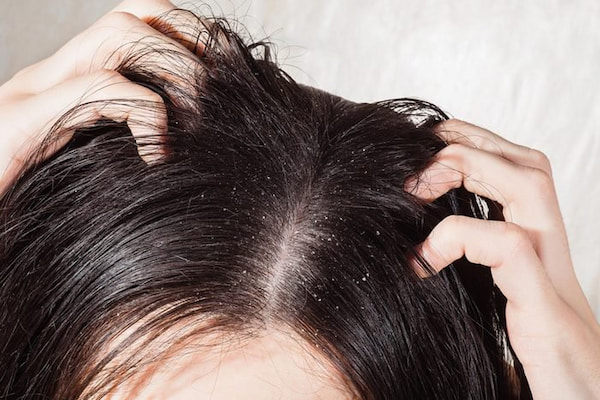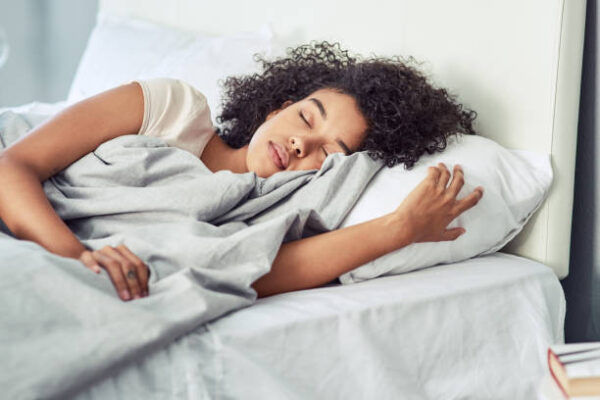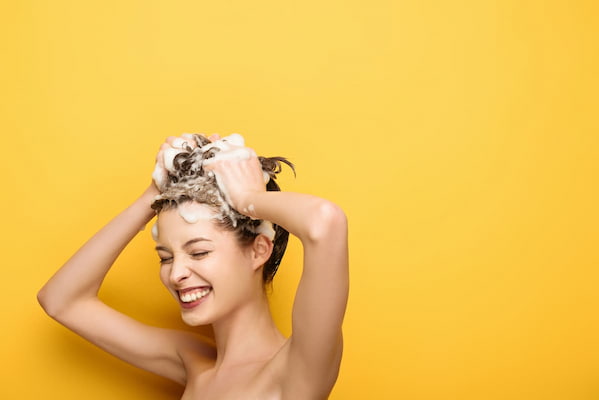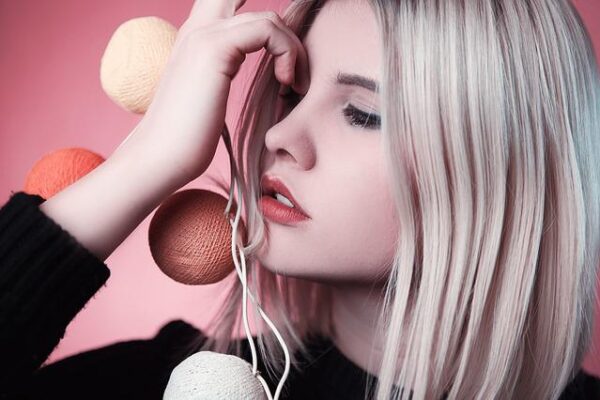Sebum, or oil, is produced in small amounts by healthy hair to lubricate the scalp and shield the hair. Your hair type, personal hygiene routines, and other lifestyle choices all affect how much oil you produce.
Your hair may occasionally become greasy, especially at the roots. Your hair has a slick appearance as a result, which some people think makes it look dirty.
So, why does my hair get greasy so fast? Probably becuase of routine mistakes, conditioner and product mistakes, shampooing with hot water, and maintenance mistakes.
Continue reading if you think your hair might be oilier than it should be. The causes of oily hair, products that can reduce oil production, and some at-home remedies for when your hair looks too oily for your taste are all covered in this article.
Table of Contents
Why Does My Hair Get Greasy So Fast?
Routine Mistakes
Touching Your Hair Too Often
Keep your fingers out of your mane if you want to maintain those just-left-the-salon tresses, even though we understand how alluring they are. Our skin contains a variety of oils, as well as dirt, germs, and other unsavory elements, which you are transmitting to your strands the moment they come into contact.
Dirty Linens
You’ve now decided to purchase a silk pillowcase. First of all, congrats. The good hair days are about to begin for you. It’s also time to educate yourself on the proper maintenance. Most likely, you won’t be able to wash it in the same machine as your other linens. At the very least, it will probably need to be run through the gentle cycle, though a hand wash might be suggested instead.
You must keep your pillowcase clean in order to keep your hair clean as well, regardless of whether you have a standard cotton pillowcase or have splurged on a silk option. More lurk between those fibers, especially if you’re still using a cotton pillowcase, including leftover makeup (yes, even if you double cleanse), skin-care residue, sweat, and other things. As the alarm clock approaches wake-up time, this residue causes your hair to become greasier. You can avoid contamination if you wash your pillowcase once a week.
Overwashing
Over-shampooing or using a shampoo that is too clarifying are the two most frequent causes of greasy hair. “For those who over-shampoo (daily shampoo friends) you are basically telling your scalp it is not doing it’s job and it over-produces oils to help protect your scalp,” says Celebrity hairstylist Sabrina Rowe Holdsworth is the creator of NTRL by Sabs. “When you wash your scalp you remove sebum, the skin’s natural oil, stimulating the scalp to produce more sebum in response,” adds SEEN Hair Care was started by dermatologist Dr. Iris Rubin.
Conditioner And Product Mistakes
Conditioner-related Issues
Hair can become greasier for a variety of reasons, including over-, under-, and improper application of conditioner. How you approach the post-shampoo process should take into account your hair type, texture, length, and other factors. Apply conditioner from the middle of the hair shaft to the ends, and always make sure to thoroughly rinse it out unless it’s a leave-in product, in which case you’ll likely be using it after the shower.
Using The Wrong Product For Your Hair
You use a serum that makes your hair dirty by day two because your best friend told you about a miraculous product you simply have to try. Newsflash: not all products are universal winners. Most likely, there isn’t one that will work on every thickness, texture, and type of hair. You can undoubtedly ask your close friends and family for recommendations, but ultimately, you might have more success speaking with your stylist about the best products for your particular hair needs.
The product line your stylist may be directing you toward isn’t necessarily the best one that is available in the salon. You should tell your stylist if those products are out of your price range so they can recommend alternate items you can buy on your subsequent trip to the store or Target.
Don’t Rely On Dry Shampoo
The solution may not always lie in using dry shampoo in place of a wash, as doing so could result in scalp buildup, which can have negative effects like making hair more oily or, in the worst cases, even causing hair loss.
Shampooing With Hot Water
And even though taking a nice hot shower is a great way to unwind after a long day, high temperatures may also be the cause of grease. “Over exposure to hot water can result in dry skin and over-production of oil to compensate,” says Harry Josh, a well-known hairdresser. Stick to medium-warm temperatures and rinse your hair with cold water to close the cuticle and restore shine.
Maintenance Mistakes
Not Brushing Enough
Are you of the “100 strokes” generation? Or perhaps your mother or grandmother taught you that as a beauty rule? Finding a good hairbrush and using it frequently can actually increase blood flow to the scalp, potentially promoting hair growth while preventing tangles.
Brushing Too Much
This advice may go against the advice to brush your hair more frequently, but it all depends on where you are in your hair-washing schedule and the results you hope to achieve. An effective brushing regimen can also aid in spreading the scalp’s oils throughout the remaining strands, keeping the hair shiny and healthy-looking. But it’s probably best to limit your brushing if you’re trying to delay your next wash.
Home remedies
Additionally, you can work on treating oily hair with easy DIY remedies. To cut through hair that feels greasy or appears oily, a number of ingredients can be effective.
Essential Oils
To reduce oil buildup on your scalp, keep some hair-healthy oils on hand.
Certain essential oils work to break down sebum and clear the pores on your scalp, despite the fact that it may seem counterintuitive to apply oils in an effort to make hair less oily.
You can thoroughly clean your hair using tea tree oil and peppermint oil, respectively.
In between washes, run a drop or two through your hair, being careful not to get essential oils on your skin undiluted. Additionally, you can make a calming hair mask by combining essential oils with additional ingredients.
Both tea tree oil and peppermint oil are available online.
Apple Cider Vinegar
There are anecdotal reports of apple cider vinegar (ACV) working well as an occasional rinse for oily hair.
The ACV is said to break down the oil while altering the pH of your hair and scalp, making it less prone to oil buildup in the first place, according to those who swear by it.
If you’d like to try this remedy:
- Approximately a gallon of warm water should be mixed with up to 10 teaspoons of ACV.
- Following a shampoo and conditioner wash, soak your hair in the mixture for a few minutes.
- After finishing, thoroughly rinse the ACV out of your hair.
Purchase apple cider vinegar online.
Aloe Vera
Using aloe vera helps remove extra sebum and might also improve circulation near your scalp.
As part of your routine, you can wash your hair with aloe vera or use a few drops of pure aloe vera as a leave-in conditioner.
See more about
Quick Fixes
It’s possible that your hair feels oily while you’re in between washes. It’s wise to keep a few quick fixes on hand to reduce the appearance of oil in your hair, especially after exercise or on a hot day.
Dry Shampoo
By absorbing oil, dry shampoo can dry and mattify your roots. Remember that overusing dry shampoo can irritate your scalp if you use it too frequently in between washes.
Online stores offer a variety of dry shampoo.
Cornstarch Or Baby Powder
Dry shampoo is similar in concept to cornstarch and baby powder, but only uses one natural ingredient.
Applying the ideal amount of cornstarch or baby powder to your hair can be a little challenging. Just use a tiny bit at the top of your head to cover oily roots because both of these ingredients can quickly dry out your scalp.
Oil-absorbing Sheets
Usually, oil-absorbing sheets are used to remove extra oil from your face’s skin. You can quickly remove oil from your hair using them if you need to. To get rid of some of the oil, concentrate on the scalp and the roots of your hair.
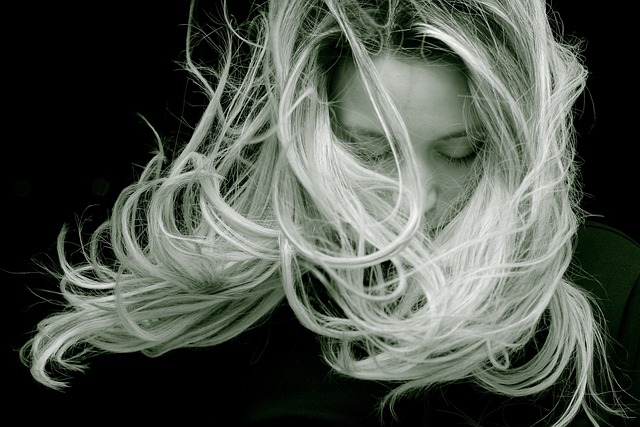
What Hair Routine Prevents Greasy Hair?
Cut Down On Shampoos
For textured hair, experts advise washing it every two to three days, while for all other types, they advise washing it every two to three weeks. “Having straight and slightly wavy hair, type 1 and 2A, can significantly increase the chances of having greasy hair due to the oil traveling easily straight down the hair shaft, as opposed to curly hair which does not,” says Juices & Botanics was started by celebrity stylist Whitney Eaddy.
Use Moisturizing Products
“A common oily hair misconception is to stay away from hydration,” When advising moisture-boosting shampoo and conditioner to increase hydration, dermatologist Dr. DiAnne Davis shares. “However, by doing so, oil glands will work extra hard to produce moisture that the hair needs, leading to grease.” Practically speaking, incorporating moisture into your routine will balance out natural oils and prevent your oil glands from overproducing. In order to distribute oil evenly throughout the scalp and hair (which will help to properly moisturize your locks), Holdsworth advises you to massage and brush in styling products rather than simply spraying them on and calling it a day.
Use Scalp Detox Treatments
Keep in mind product build up while we’re on the subject. To free your scalp of product buildup and reveal less greasy roots and strands, include a weekly or biweekly scalp detox treatment. If you use an ACV rinse or a professional scalp detox treatment, the roots will also be stimulated for a generally healthy appearance.
Clean Your Brush Regularly
Unfortunately, if you don’t get rid of the old hair on your favorite hair brush, it could become the home of all your product buildup. “Brushes, our fingers, and our products all have oils that can grasp to our strands,” says Eaddy. If you’re having trouble with too much grease in your hair, he advises actively cleaning your brush and comb. He also advises against using your fingers to run through your hair.
Are you prepared to finally have hair days without grease? Here are some of the experts’ recommended products for your routine.
How Can I Prevent The Greasiness Of My Hair?
The Quickest Solution Is To Shampoo Your Hair
Shampoos are created specifically to clean your hair and get rid of oil. You may need to shampoo as frequently as once a day or even more depending on how quickly your hair becomes greasy. Gently massage your scalp while shampooing and wait at least 5 minutes before rinsing.
- There are shampoos made especially for oily hair that use specific detergents that remove more sebum from the scalp and hair shaft. You might try looking for shampoos for oily hair that include detergents like ammonium or sodium lauryl sulfate.
- If you believe your hair might not be getting thoroughly clean during your shower, try shampooing it twice.
Use Hair Products Without Oils
Oils, serums, and conditioners can help hydrate and strengthen your hair, but they can also make fine hair appear limp and add extra grease to your hair. When choosing products, try to look for ones that are labeled “greaseless” or “oil-free.”
- By avoiding applying these products to your scalp, you can also try altering how you use them; for example, only apply conditioner to the ends of your hair.
Avoid Overbrushing Your Hair
When you brush your hair, the motion spreads oil from your scalp to the ends of your hair, making it greasier. Another option is to brush more gently to lessen the oil’s spread.
- Try to only brush your hair twice a day at most.
- Try to refrain from touching your hair for the same reason! You may be further dispersing the oil throughout your hair if you find yourself touching or playing with it all the time.
Without Washing It, How Can I Fix My Greasy Hair?
Use A Dry Shampoo
Use a dry shampoo if you don’t have time or want to wash your hair because it is typically made with a starch ingredient that can help absorb sebum similarly to a regular shampoo. If your hair gets greasy quickly, dry shampoos are a good option to use between washes. They can also give your hair more volume and body.
- Make sure you’re applying dry shampoo properly! Shake the bottle well before using, and avoid spraying too close to your scalp to avoid giving your hair a chalky appearance. To avoid using too much, start with smaller amounts and add more only as needed.
- Baking soda and cornstarch are two ingredients you can use to make your own dry shampoo. As an illustration, try mixing 1 tablespoon of baking soda with 1 tablespoon of cocoa powder. Then, apply the mixture to your roots, massage it in, and if necessary, blow dry to completely blend it in.
Use Paper Towels To Blot Your Hair
If you don’t have dry shampoo, wiping the sebum with a paper towel can help lessen the greasy appearance. If the paper towels aren’t getting rid of all the oil, you can also use specialized blotting sheets.
What Is A Sign Of Oily Hair?
It Could Be A Symptom Of A Stressful Lifestyle
Your body makes more cortisol, a stress hormone, when you are under stress. Grainy hair can result from increased oil production, which can be brought on by elevated cortisol. If you’ve recently been under a lot of stress, try taking care of yourself with stress-reduction strategies like getting enough sleep, working out frequently, taking breaks, and talking to friends.
- It’s possible that birth control pills, which also alter hormone levels, are to blame for greasier hair.
An Unbalanced Diet Could Be The Cause Of Greasy Hair
You may want to improve your nutrition for healthier hair because dietitians believe that your diet has a significant impact on how your hair looks. Try to consume a balanced diet that includes grains, lean proteins, fruits, vegetables, and healthy fats to ensure that you get the recommended daily allowance of iron as well as the essential vitamins A, E, and D for healthy hair.
- If your diet is already balanced, you shouldn’t take extra supplements or consume excessive amounts of one vitamin.
- You might also try eating fewer foods that are fried in oil.
Conclusion
Certain hair types are more likely than others to accumulate oil. But you can reduce how oily your hair looks by using a variety of at-home remedies, hair care products, and beauty routine substitutions.
Even if you think you’ve tried everything, there probably are still a few tricks you haven’t heard of.
Remember that a small amount of oil buildup in your hair is normal and is simply one of the ways your body protects your scalp.
Consult a dermatologist for advice if you’re worried about how much you perspire or if your scalp is frequently irritated.
Many thanks for reading.

